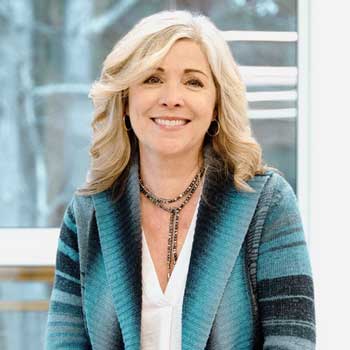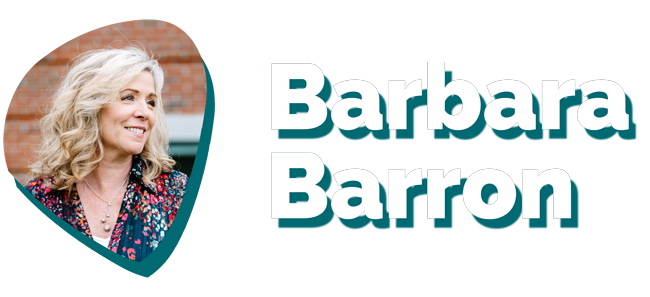by Barbara Barron | Posted February 21st, 2023 | Subscribe to this newsletter

Recently, I had the privilege and pleasure to lead a webinar/conversation among advancement professionals around the San Francisco Bay Area. I’ve been associated with this fine group for 11 years and have served on its program planning committee for two regional and state-wide conferences. I’ve been honored to present at three conferences. This time, it was a Think Tank Thursday – a periodic, professional development session, offered remotely. (Another great idea begun in Covid that continues today.)
The topic: “Getting a Seat at the Table – Advice for How to Bring Your Influence to Make Better Choices About Future Trustees.”
Initially, I was asked to talk about ways to work more productively with a development committee. But what I know is this:
So many of the challenges we face with trustees and board committees are a result of a problem occurring further upstream, namely a Committee on Trustees (or Nominating Committee) that lacks good intelligence and a strong process. The sad result of this is that new trustees arrive at the “job” uninformed about their roles and responsibilities regarding advancement, and ill-equipped to be as helpful as they wish to be.
I reasoned that it is we, the Advancement Professionals, who can help solve this problem.
Have you subscribed to this newsletter yet? It only takes a minute.
A Quick Definition of Terms
Most schools and other non-profits have a standing committee of the board called Nominating, Governance, or Trustees. This committee is charged with identifying needs within its membership and selecting and nominating new trustees or directors each year. Further, they are asked to help create meeting agendas that include a professional development opportunity on a regular basis. And they often manage the self-assessment good boards conduct annually.
It is an important committee. And can be a powerful one.
But without insight into the community and the potential leaders within it, they are missing some key intelligence. That can lead exactly where you think it will: insular, out-of-touch boards that don’t represent the communities they serve.
For example…
The Nightmare Example
From my own experience: a school that was run entirely by white men, all alums in their 60s and 70s, whose process was to close the door, light up cigars, and brainstorm about other men from their classes with whom they were still in touch.
Seriously.
This co-ed day and boarding school with a large Asian enrollment had no women, no persons of color, and no current parents on the board.
That may be a rather extreme example. But many schools have processes that can use an upgrade. The intelligence and experience the advancement professional has, by meeting daily with members of the community, provides a rich vein for the committee to tap.
But getting a seat at that table is not automatic for many in our roles. Far from it. Cultures and practices vary widely between organizations, to be sure. I’ll argue that, regardless of that frustrating fact, there are some sound – and fairly easy steps – anyone in this role can take to begin to move towards becoming the trusted advisor I believe we all want to be.
Three Seasoned Pros Weigh In
To get additional advice and perspectives beyond my own, I asked three seasoned and outstanding professionals I knew in our group to participate in the facilitated conversation about ways to bring intelligence and experience to these vital volunteer leader selections. All have served their current school for a decade or more. All hold that seat and understand the value in it.
We had a big group interested in this – clearly – resonating topic. At our session, 55 people attended. And a great conversation ensued.
So, what were some of the takeaways, that you, dear advancement pro (or Head of School or Executive Director) or you, trustee (hear, hear!) can use to advance your process and improve your outcomes? Here you go:
Create a process. This means smart systems that help the committee build a pipeline. It means tools that allow them to identify needs, track terms, rate prospective members, and monitor the process. Each member of our panel had smart spreadsheets that they used year over year so there is consistency and good record-keeping.
Strive for consistency. I’ve helped committees create a set of questions that each committee member uses when talking with a prospective trustee. This ensures that we ask the same questions to learn the same information we need. While the answers will obviously vary, there is fidelity to the process and better comparing of apples to apples, regardless of who is doing the interviewing.
Set clear expectations during the early vetting process. Get specific about attendance at meetings, participation at the committee level, and the essentials like confidentiality and setting aside personal agendas. And the grandmommy: making the school a philanthropic priority during terms of service. One panelist talked about laying out the hope that the prospective trustee will consider a specific gift range to their future campaign. Not a pay-to-play. Ever. It’s only right and respectful to be upfront with our prospective leaders. And that clearly expressed hope will make the conversation later a whole lot smoother.
Ask one member of each of your board’s standing committees (Advancement, Buildings & Grounds, Finance, and others) to serve a year on the Committee. This can bring clearer, real-time insights about needs to the group.
Beware of the person campaigning for a spot on the board. From painful personal experience, I can attest to the sad reality that the least effective (read: most destructive) trustees I’ve ever worked with were just a bit too eager to join. That should be a huge red flag. Board seats need to go to the people who can put the school ahead of any personal agenda. This is especially relevant when dealing with current parents. It can be wise to communicate that today’s trustees should be focused not on their students but rather on the children of their students. Find another way for them to help.
And last but not least…
Find ways to be helpful now. If you are new to your organization — or the systems in place are such that you are yet welcomed into that committee as a guest or as the staff liaison — then the time to add value was yesterday. Baby steps. One of our panelists long ago figured out that creating profiles for every new family would become a resource to the Committee on Trustees. It did. Ask your Head of School to help advocate for your role. Always coming from a place of wishing to be of service is the best and right attitude to hold. That, and patience!
In Closing…
Remember, friends, the value you bring is significant. You know these families. You know if they are responsive or ignore calls and emails. You know if they skew positive or find reasons to create drama. Are they helpful? Do they say yes when you ask them to volunteer? Do they play well with others? Or is it all about them?
Finally, and vitally — are they generous? Do they give meaningfully, according to their capacity? (Sadly, wealth doesn’t correlate with generosity. But a “giving track record” is a solid data point.)
If you feel stuck where you are and could use some support in this important area, ping me. And to all of you out there, thank you again for everything you’re doing.
Be well.
Barbara Barron

About the Author

BARBARA BARRON is one of the most respected and highly sought-after independent advancement professionals in the country, having worked with dozens of schools in every corner of the United States.
She has raised over $20 million for schools where she served as the Director of Development. Barbara is a New York Times bestselling author, speaker, and presenter who currently advises dozens of schools in various capacities. She is considered a thought leader in the world of advancement, with her writing widely shared by professionals in development offices worldwide.






